Venezuelans spend hours in long lines for basic groceries.
It was a hot Saturday morning in a western Caracas suburb, and Laura Silva, 37, was the eighteenth person in line for cheap chicken.
“Getting food to your fridge is a full-time job in Venezuela,” she told me, wiping sweat from her forehead. It was 9:30 a.m., and already she had been standing under the blazing September sun for three hours. She said she often spends three full days a week waiting in line to buy basic products. “And it’s not like my kitchen is remotely full,” she added.
Venezuela has suffered frequent shortages of basic foodstuffs in recent years, as government price controls have made it unprofitable to produce them. Recurrent presidential decrees immediately affect the country’s market—like in August, when President Nicolas Maduro, a former union worker who rose to power in 2013, announced new economic measures and stores started to fill up shelves with pork meat, leaving chicken and beef nowhere to be found in Caracas for several weeks.
The economic crisis in this South American country, which has the world’s largest oil reserves, is disrupting people’s lives in ways they’d never imagined. Poverty has almost doubled since 2015, and Venezuelans lost, on average, 24 lbs due to food scarcity last year, according to a local university study. An estimated 30 percent of children younger than 5 years old are malnourished, according to the aid organization Caritas.
Many Venezuelans, like Silva, have either lost their jobs or have seen their wages so depressed it no longer made sense to work. They spend their days waiting in lines to buy basic groceries and improvising to replace the things no longer available.
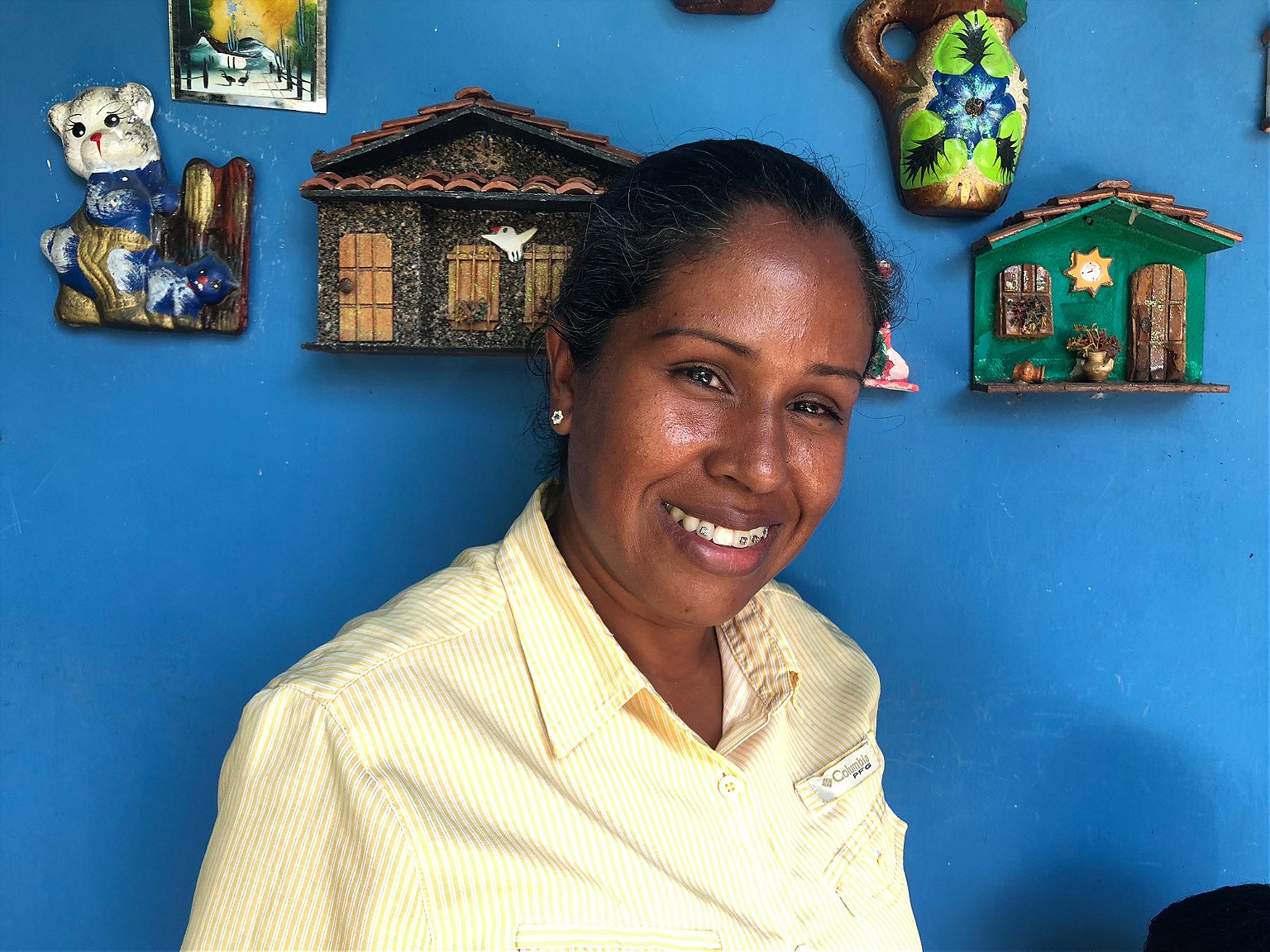
Years of mismanagement and corruption under late president Hugo Chavez’s “Socialist Revolution” which President Maduro continued, plus a drop in oil prices in the past three years, have triggered spiraling hyperinflation, widespread scarcity of food and medicines, and a massive exodus of desperate residents from the petroleum-rich nation.
“Who isn’t mad in this country?” Silva said, after an elderly man ahead of her complained that his legs ached from standing for too long. “Our lives have become a never-ending struggle.”
“We used to be middle class,” Silva said. “Now we have to focus on things like chicken.”
“This is our weekend routine,” said Anthony Colmenarez, Silva’s husband. Colmenarez, 32, earns minimum wage—about $15 per month at September’s exchange rates—as a construction worker; the couple shops together on Saturdays because products sold at government-regulated prices, like meat, eggs, milk, and hygiene products, are only available at limited amounts per person. That day, they were hoping to each purchase a kilo (2.2 lbs) of chicken, which would cost less than a dollar. They were shopping for a household of six, including Silva’s parents, her brother and his girlfriend.
“We used to be middle class,” Silva said. “Now we have to focus on things like chicken.”
For most Venezuelans, the process has grown routine, ordinary: Customers arrive before sunrise and form a line in front of the small store. Passersby ask what’s being sold and quickly join the line when they hear the answer.
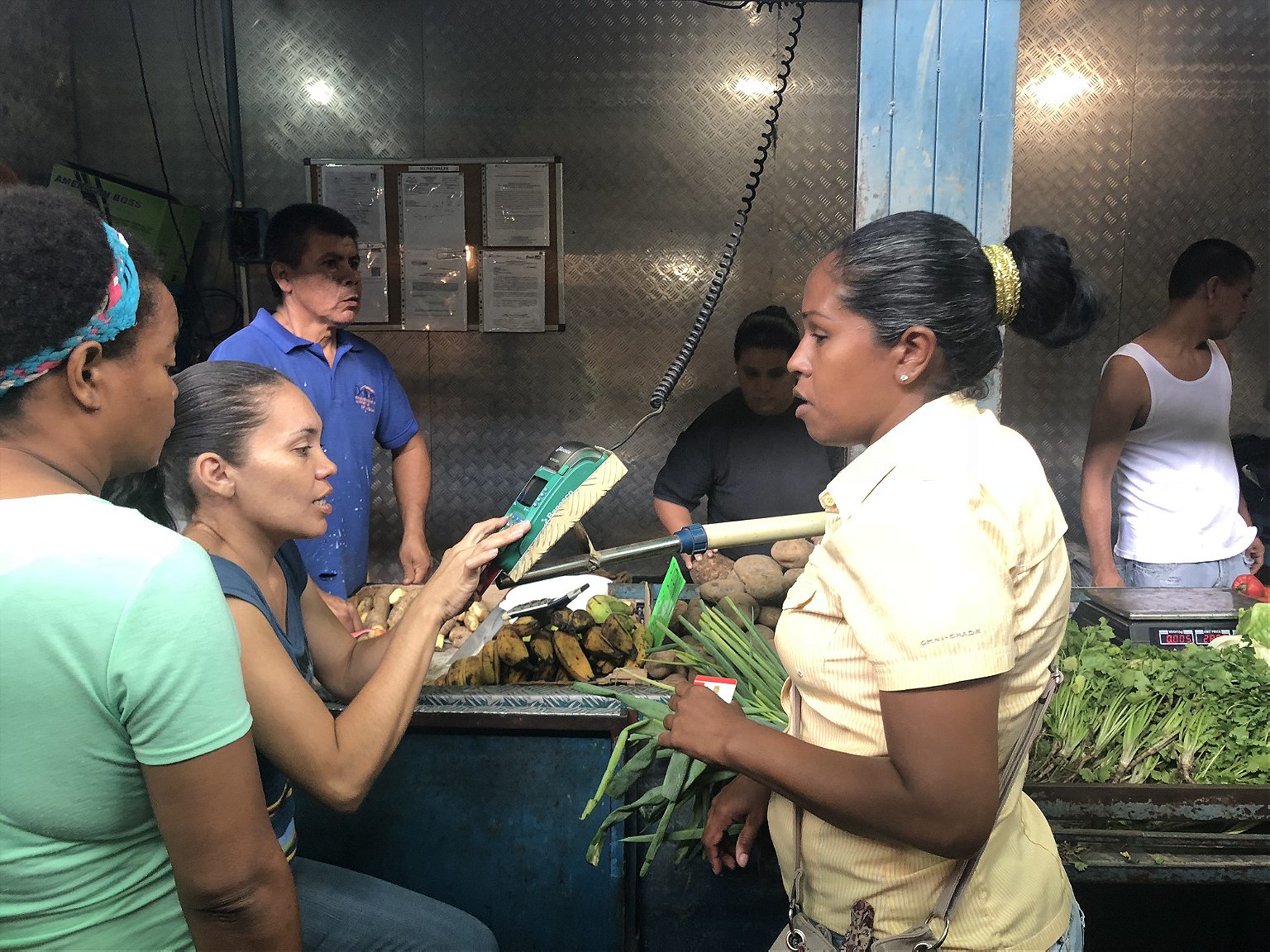
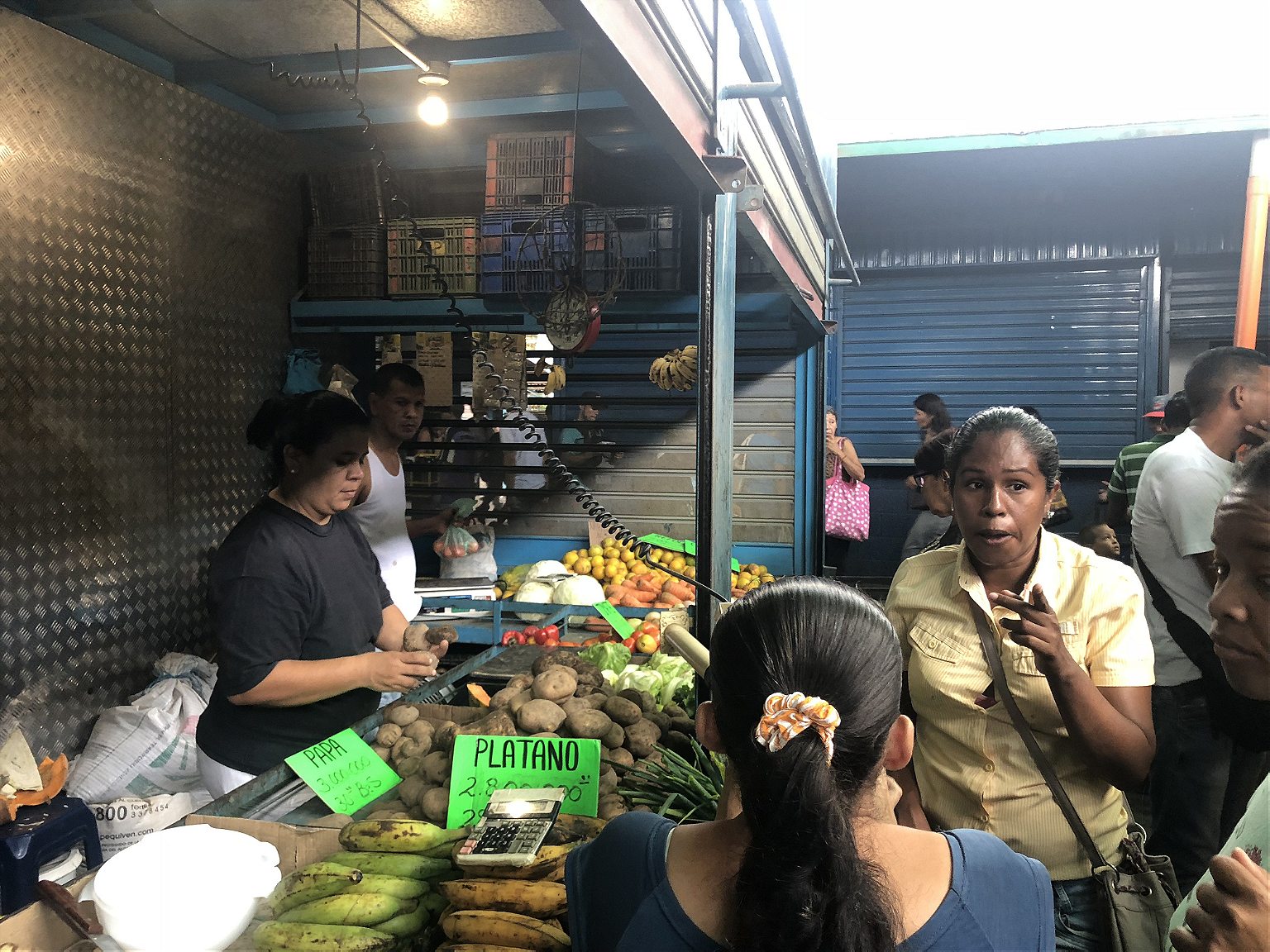
Silva, who told me she had lost 10 lbs in the last two years, said her life started to deteriorate in 2015. That was when she ran out of money to dye her hair and get manicures. She was working as a trader—she bought and sold gold—and business was slow. “My hair was so beautiful people stopped me in the streets,” she said. “Now I always wear it up. It sounds kind of superficial, but for women like me, it’s depressing.”
She stopped working a year ago, when transportation between pawn shops became more expensive than her day’s earnings, and signed up for a government ID that gives her access to subsidized food boxes and bonuses. She now receives between $5 and $10 a month and spends her days going to church and searching for basic needs.
Two days before we met, Silva had spent five hours waiting in line outside a bank only to find there was no cash left to offer.
Related Reads
At around 10:00 a.m., the line began to move.
The street smelled like garbage—trash collection in much of Caracas is irregular—and the walls surrounding the grocery store was covered in fading, pro-Chavez graffiti, with slogans like: “Let peace continue, let revolution go on.”
A skinny man with ripped jeans went down the line, asked everyone for their IDs. He was in charge of keeping order.
“Those who cut the line won’t be able to come in,” he shouted. About a dozen people standing by looked at each other awkwardly—they had clearly intended to do just that.
Ten minutes passed. “Come in,” the skinny man said. “Tell me your name and I’ll give you your ID back. Please have your debit cards ready to pay.”
Laura and Anthony darted into the store, and I lost them in the crowd. Fifteen minutes later, they reappeared, in line to pay—it was a short but slow-moving line.
Suddenly a nearby street cable popped, and the entire block went dark. Another power outage—something else that has grown increasingly frequent in the country in recent years. When Silva saw the cashiers were still working, she sighed in relief with a hand on her chest. She left the store trying to hide what was in her bag.
“Two chicken, one carton of eggs, and a mortadella. All gold here now,” she said, whispering and on guard. “Walk fast.”
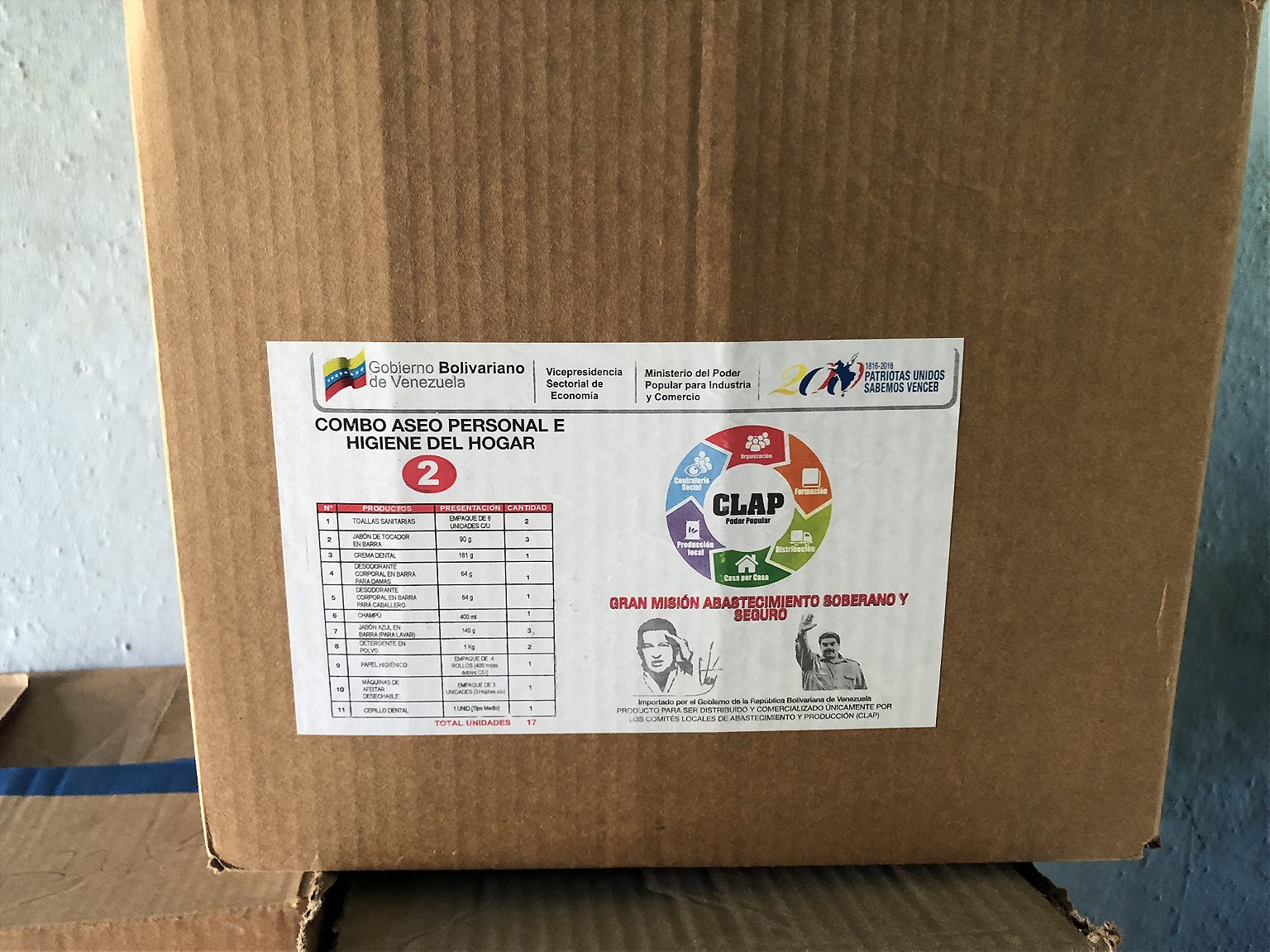
Our next stop was a produce market. Silva planned on making guava juice.
“We’re craving something sweet. I haven’t had cake or cookies for at least a year,” she said.
The couple walked in between customers, many asking prices yet few of them actually buying the produce in question. “How are you doing comadre?” the cashier of one fruit-stand said when she saw Silva.
“Doing okay madre, to say no more,” Silva replied. They laughed. Silva touched the guavas and took seven.
“Only 300 bolivars left in my account,” she said, matter-of-factly. They had spent 500 bolivars, or around $5, at the black-market rate that day, almost a week’s wages for Colmenarez.
Wealthier Venezuelans—usually those with access to foreign currency—buy food from so-called bachaqueros (which translates to leaf-cutter ants), who resell regulated items on the black market, sometimes at 10 times the original price. What they’re paying for in the upsell is the convenience of not waiting in line.
The black-market exchange rate has more than doubled since August, when Maduro implemented the latest economic adjustments, meaning if you don’t have access to dollars, everything has become at least twice as expensive. The price of food has gone up even more. Not to mention things like soap and shampoo, Silva said.
Related Reads
At noon, Silva’s father, Ángel, picked the couple up in a red 1975 Malibu that he uses only sporadically—spare parts are impossible to afford, he said (I followed behind in my own car). The 59-year-old former construction worker takes cantaloupe-skin tea to substitute hypertension pills that he either can’t find or afford. Instead of coffee, which can cost as much as 600 bolivars a pound, he makes his family a bland, hot drink out of corn flour.
Their concrete, four-bedroom house was just off the highway. A plastic pool outside had been unused for a year, Silva said. It’s only there now to store water for bathing, flushing toilets, and washing dishes, since water shortages have also become increasingly common. Two damaged cars sat outside, abandoned.
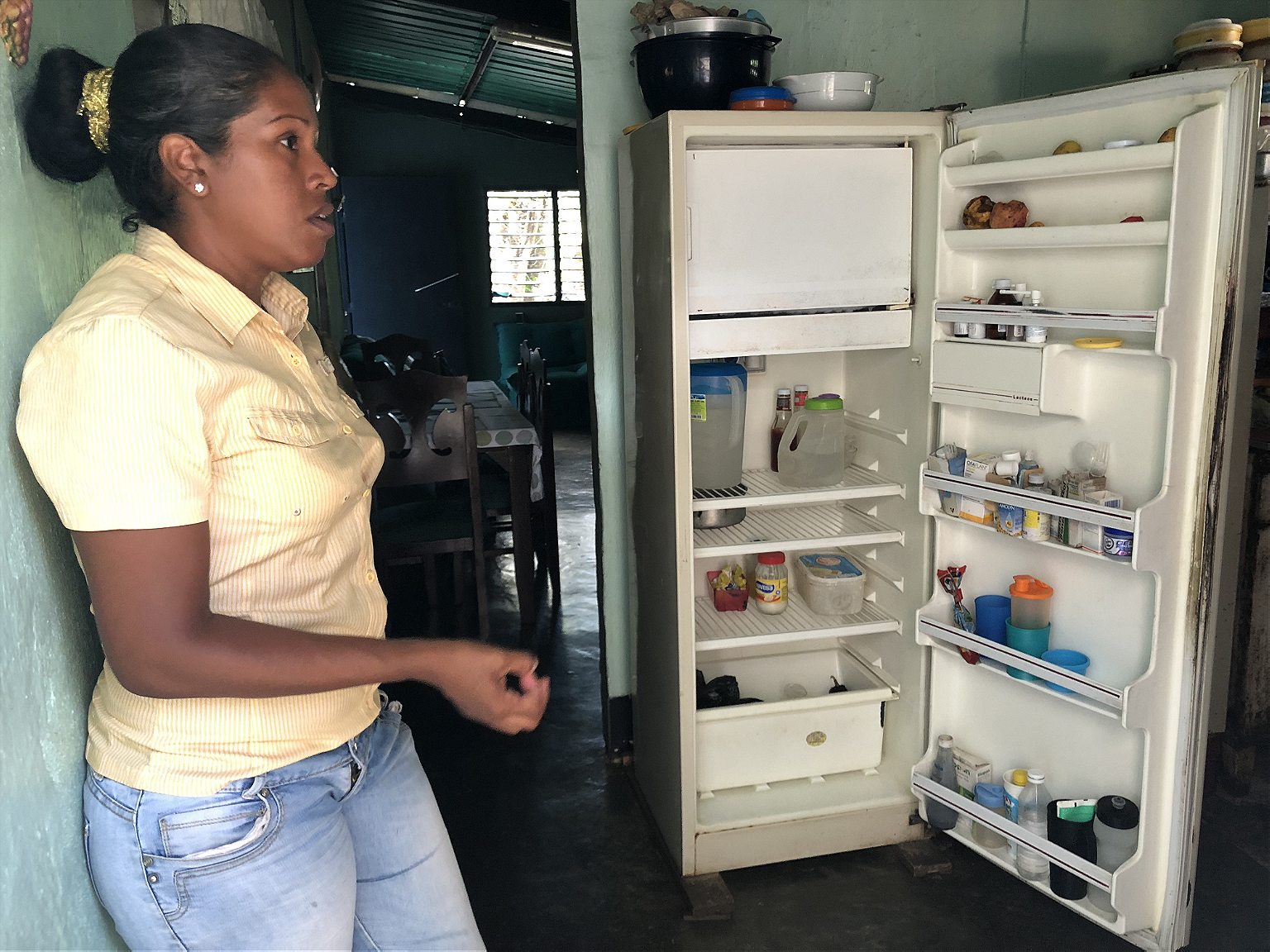
Silva rushed to the kitchen with her groceries. Her mother, Gloria Muñoz, 58, peered inside the bag and smiled. She started to clean one chicken. “It’s small and filled with water. But we’ll cut it into tiny pieces and make it last,” he said. Then she thought better of it. “We’ll make the chickens on Monday for the week,” she said. “Let’s save it.”
Silva washed the guavas in a small tub and cut them in half. She then used a strainer to take out the seeds and pulp. She poured the result into a blender with water and then into a pitcher.
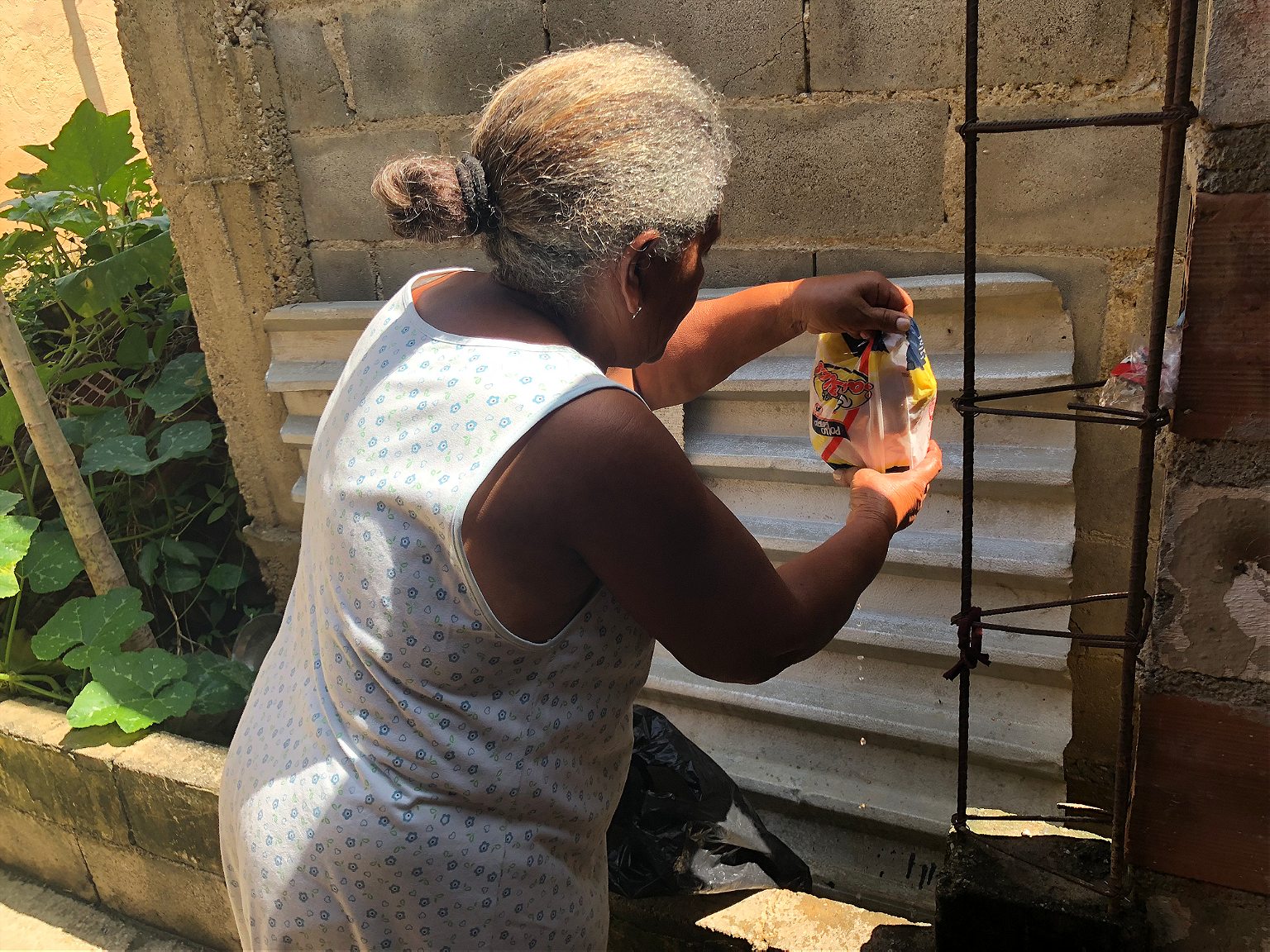
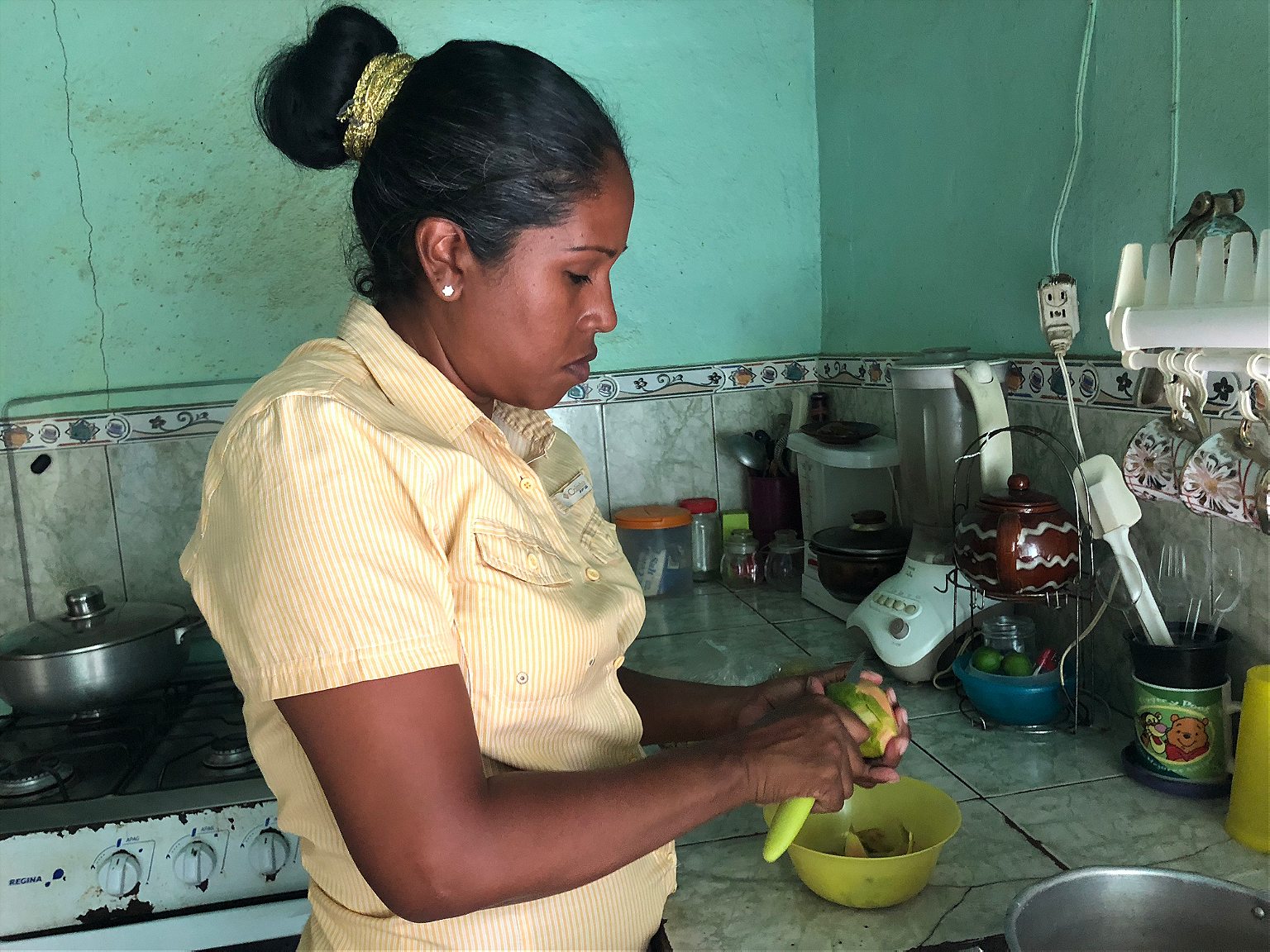
“Whenever someone wants to drink, they get a glass and put some sugar in it. That way we save sugar. It’s too expensive,” Silva said. That night, they dined on leftover vegetables, some white cheese, and the juice.
Five days later the family of six had eaten half the carton of 15 eggs, and the two chickens were gone.
“Gotta do it all over again,” Siva said on the phone. “That’s the way it is for us.”






